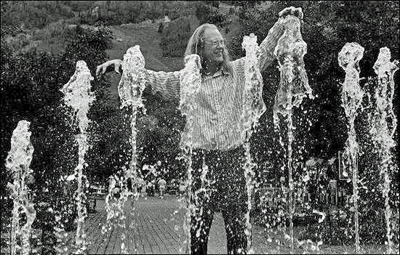

Public Lecture
Will Machine Intelligence Surpass Human Intelligence?
Yann LeCun
Meta-AI, New York University
Wed, Mar 1, 5:30–6:30pm
How could machines learn as efficiently as humans and animals? How could machines learn to reason and plan? How could machines learn representations of percepts and action plans at multiple levels of abstraction, enabling them to reason, predict, and plan at multiple time horizons? LeCun will propose a possible path towards autonomous intelligent agents, based on a new modular cognitive architecture and a somewhat new self-supervised training paradigm. The centerpiece of the proposed architecture is a configurable predictive world model that allows the agent to plan. Behavior and learning are driven by a set of differentiable intrinsic cost functions. The world model uses a new type of energy-based model architecture called H-JEPA (Hierarchical Joint Embedding Predictive Architecture). H-JEPA learns hierarchical abstract representations of the world that are simultaneously maximally informative and maximally predictable.
The corresponding working paper is available at https://openreview.net/forum?id=BZ5a1r-kVsf

About Yann LeCun
Yann LeCun is VP and Chief AI Scientist at Meta and Silver Professor at NYU affiliated with the Courant Institute and the Center for Data Science. He was the founding Director of Facebook AI Research and of the NYU Center for Data Science. He received an EE Diploma from ESIEE (Paris) in 1983, a PhD in Computer Science from Sorbonne Université (Paris) in 1987. After a postdoc at the University of Toronto, he joined AT&T Bell Laboratories. He became head of the Image Processing Research Department at AT&T Labs-Research in 1996, and joined NYU in 2003 after a short tenure at the NEC Research Institute. In late 2013, LeCun became Director of AI Research at Facebook, while remaining on the NYU Faculty part-time. He was visiting professor at Collège de France in 2016. His research interests include machine learning and artificial intelligence, with applications to computer vision, natural language understanding, robotics, and computational neuroscience. He is best known for his work in deep learning and the invention of the convolutional network method which is widely used for image, video and speech recognition. He is a member of the US National Academy of Sciences, National Academy of Engineering, and the French Académie des Sciences, a Chevalier de la Légion d’Honneur, a fellow of AAAI and AAAS, the recipient of the 2022 Princess of Asturias Award, the 2014 IEEE Neural Network Pioneer Award, the 2015 IEEE Pattern Analysis and Machine Intelligence Distinguished Researcher Award, the 2016 Lovie Award for Lifetime Achievement, the University of Pennsylvania Pender Award, and honorary doctorates from IPN, Mexico, EPFL, and Université Côte d’Azur. He is the recipient of the 2018 ACM Turing Award (with Geoffrey Hinton and Yoshua Bengio) for "conceptual and engineering breakthroughs that have made deep neural networks a critical component of computing".
Nick and Maggie DeWolf Public Lecture Series
The Nick and Maggie DeWolf Foundation has sponsored our winter public lecture series since their inception in 1985. The Nick and Maggie DeWolf Foundation is a nonprofit organization based in Aspen, Colorado. Its core tenet is to provide support to groups and organizations interested in improving the quality of life and education in the world. During the winter, Aspen Center for Physics hosts week-long conferences, and during each conference one of the conference participants is asked to give a public physics talk. You can watch past talks on our YouTube channel here.
